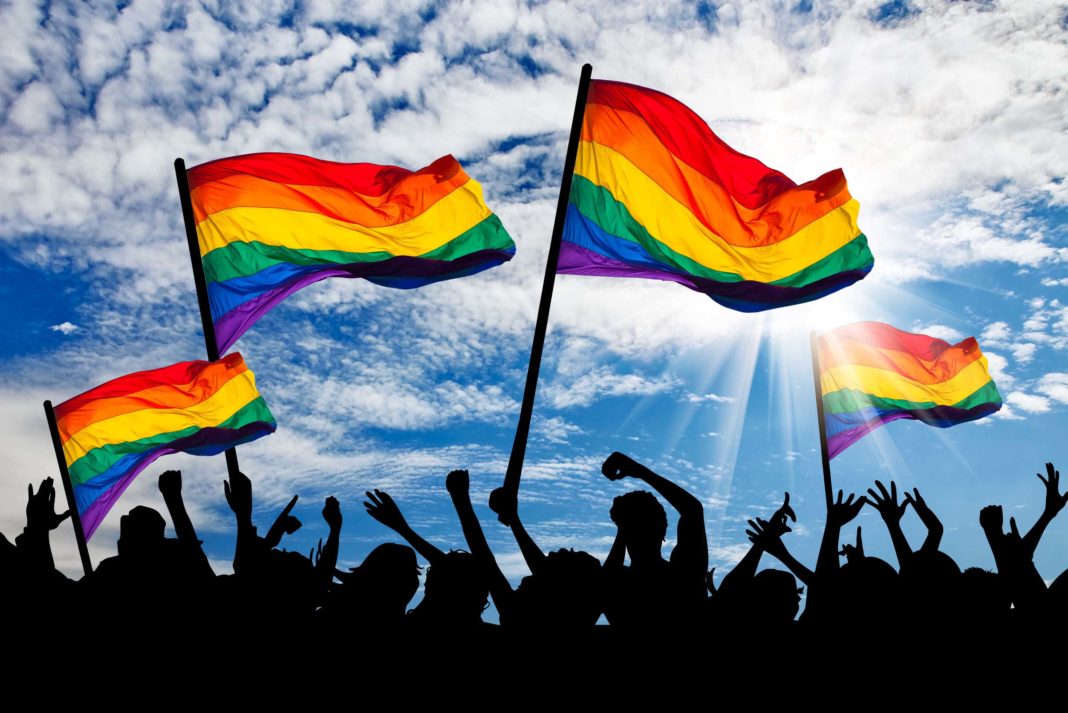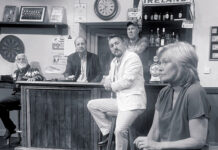One year on, it’s clear that the Marriage Equality Referendum was about a lot more than just marriage, writes Donal O’Keeffe.
“There is no equivalency between marriage and sodomy and those who seek to make them equal are only codding themselves and others.”
So began a letter to The Avondhu in March 2015. The writer – a regular “family values” correspondent whose ultra-conservative Catholic views would make a board meeting of the Iona Institute look like Sunday brunch at the Playboy Mansion – was scandalised at the then-imminent marriage equality referendum.
God was quickly brought in to back up her argument because, presumably, there’s little the Almighty can’t be rolled out to justify. “God is not mocked,” she wrote. “We need only to see the cities of Sodom and Gomorrah to know that God will not tolerate homosexual behaviour.”
“Since it is a grave sin, we cannot support sodomy under any circumstance… In Ireland for the past twenty years, in particular, we have been drip fed the homosexual lifestyle.”
TV soaps, apparently, have been to the forefront, “softening up the nation with their carefully crafted scripts so that our acceptance of the homosexual lifestyle, that which is so opposed to God’s laws, has taken a ‘soft grip’ on the minds of the people”.
(At the time, I asked the human rights campaigner and leading member of Yes Equality Colm O’Gorman if “the homosexual lifestyle” mainly involves, as I’ve long suspected, liking Abba. “Pretty much,” he replied, drily. “That and really, really nice shoes”.)
The Avondhu’s correspondent, however, warned “any opposition to the ‘gay lifestyle’ will earn us the term(s) homophobic, intolerant, ignorant and old fashioned. While many may be bullied into silence, Christians are called to witness to Christ and to speak the truth, uncomfortable though it may be….
“We could never have envisioned that in 2015, Ireland would be asked to vote sodomy into the Irish Constitution and be deluded into calling it marriage.” The correspondent saw this as part of an agenda she called “The new ‘Human Rights’”.
It really is a fantastic screed and it breaks my heart not to re-produce it in full. (Sodomy is mentioned three times – and five times in a follow-up letter – leading me to conclude that some people really do seem to spend a lot of time thinking about sex.) It is indeed, as the author said, “homophobic, intolerant, ignorant and old fashioned”. It is also deeply offensive, not just to anyone who is gay, or to anyone who has gay family and gay friends, but also to anyone who just wants to live in a republic of equals and an Ireland of warmth and kindness.
It is also, in hindsight, a lot more honest than much of the dog-whistle stuff about children peddled by the No campaign. The letter spurred some of its readers into replying.
Maeve Keane called it “filled with thinly-veiled fear, loathing, and disgust, under the guise of Christianity” and asked “surely in 2015, we have had enough of the terrible damage done under the guise of Christianity?” She concluded “Human rights are for all, not just for some, and should never be written in inverted commas”.
Rebecca Murphy suggested that if and when the marriage equality referendum was passed, the writer should simply get “on with her life and (not) enter into a same-sex relationship herself. After all, it’s the right to marry someone of the same gender we’re voting on, not the obligation.”
Sonya Donnelly noted that homosexuality is only briefly mentioned in about six of the Bible’s almost 32,000 verses and suggested that if the writer “is such an adherent to the Bible she should be writing letters about the sins of eating shellfish, getting a divorce, tattoos, working on Sundays, eating fruit from a tree within four years of planting it and men trimming their beards. But she doesn’t, as she is willing to cite Leviticus for what she personally thinks is sinful, while ignoring the things she doesn’t.”
I replied too, pointing out that “of the 41,071 words attributed to Jesus Christ in the New Testament, nary a one of them did he speak on the subject of homosexuality. If being born gay is the abomination (the writer) believes it is, would the Son of God not have made sure to address it?”
Sonya Donnelly ended her letter by saying “If you value love and commitment I would ask you to vote yes in the upcoming referendum. Some people will tell you that you should be afraid, but there is nothing to fear from allowing a couple in love to marry and devote their lives to each other.”
In the weeks that followed, I found it strange to be greeted on the street by women and men (mostly of retirement age and older) who said they had read our letters and had been delighted by them. They all expressed a sense of fair play and a desire to live in an Ireland where everyone was welcomed and made to feel they belong. A recurring comment was that “people like that” had held sway for far too long in Ireland and it was past time “the rest of us” spoke up.
All over the country, it turned out, that sentiment was replicated.
As we know all too well – and as our neighbours may be about to discover – referenda have a habit of becoming about something other than what is on the ballot paper (usually a vote on the government’s unpopularity). A year on, it’s obvious that the Marriage Equality Referendum too became about more than just “Féadfaidh beirt, gan beann ar a ngnéas, conradh pósta a dhéanamh de réir dlí” (“Marriage may be contracted in accordance with law by two persons without distinction as to their sex”).
Ironically for the “family values” warriors, the 34th Amendment did become about family values, just a more inclusive and loving version of family values than they like. And for all the No side’s shrieking about children, the referendum really did become about children; in part it became a heart-felt apology to the countless generations of Irish children born gay, shunned and criminalised by a cold Ireland. It also became a joyous celebration of all of our children, regardless of the colour of their eyes or the love in their hearts.
Thousands of us became part of Yes Equality and we took to the streets and the roads, we handed out leaflets and we knocked on doors. On Friday the 22nd of May, 2015, 1.2 million Irish citizens reclaimed that most misused word – decency – and voted Yes, making Ireland the first country in the world to legalise marriage equality by popular vote.
It was about families, about friendship and about the future we want for our Ireland. Fittingly – for a referendum on marriage – it was about love.
As of last Thursday, (12th May, 2016,) 397 LGBT couples have married in the Republic of Ireland. The sky has not yet fallen. Our Yes votes brought a lot of happiness to this world and any day we can do that is a great day for Ireland.








